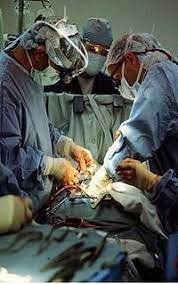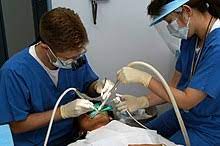The Latest Advancements in Cardiac Surgery
In recent years, the field of cardiac surgery has witnessed remarkable advancements and innovations that have significantly improved patient outcomes and the overall quality of care.

Minimally Invasive Techniques: A Game-Changer
Minimally Invasive Cardiac Surgery
Minimally invasive cardiac surgery has emerged as a game-changer in the realm of heart procedures. Unlike traditional open-heart surgery, which involves a large incision, minimally invasive techniques use smaller incisions and specialized instruments. This approach offers numerous benefits, including reduced scarring, shorter recovery times, and decreased risk of complications. Patients can now undergo complex cardiac procedures with significantly less trauma to their bodies.
Robot-Assisted Surgery: Precision and Accuracy
Robot-Assisted Cardiac Surgery
Robot-assisted surgery has gained prominence as a revolutionary technology in the field of cardiac surgery. The use of robotic systems allows surgeons to perform intricate cardiac procedures with unparalleled precision and accuracy. These systems provide 3D visualization and enhanced dexterity, enabling surgeons to access hard-to-reach areas of the heart. As a result, patients experience reduced pain, shorter hospital stays, and quicker return to normal activities.
Transcatheter Valve Replacement: A Less Invasive Alternative
Transcatheter Aortic Valve Replacement (TAVR)
Transcatheter aortic valve replacement (TAVR) has become a preferred option for patients with aortic valve disease. This minimally invasive procedure involves replacing the aortic valve using a catheter, without the need for open-heart surgery. TAVR has revolutionized the treatment of aortic stenosis, offering patients a quicker recovery and an improved quality of life. The success of TAVR has made it a cornerstone of modern cardiac surgery.
The Power of 3D Printing: Customized Solutions
3D Printing in Cardiac Surgery
The integration of 3D printing technology into cardiac surgery has opened doors to personalized solutions for patients. Surgeons can now create patient-specific models of the heart, aiding in surgical planning and improving the precision of interventions. 3D printing allows for the design of custom implants and prosthetics, enhancing the outcomes of complex cardiac procedures.
The Future of Cardiac Surgery: Gene Therapy
Gene Therapy in Cardiac Surgery
Looking ahead, gene therapy holds the promise of transforming the landscape of cardiac surgery. Researchers are exploring innovative approaches to target and modify genes related to heart conditions. This emerging field may provide solutions for congenital heart defects and genetic predispositions to heart diseases, potentially reducing the need for invasive surgeries in the future.
The field of cardiac surgery is continuously evolving, with new techniques and technologies enhancing the quality of care for patients. Minimally invasive procedures, robot-assisted surgery, transcatheter valve replacement, 3D printing, and the exciting potential of gene therapy are paving the way for improved patient outcomes and a brighter future for cardiac surgery. Staying informed about these advancements is essential for both healthcare professionals and patients seeking the best possible care in the field of cardiac surgery






